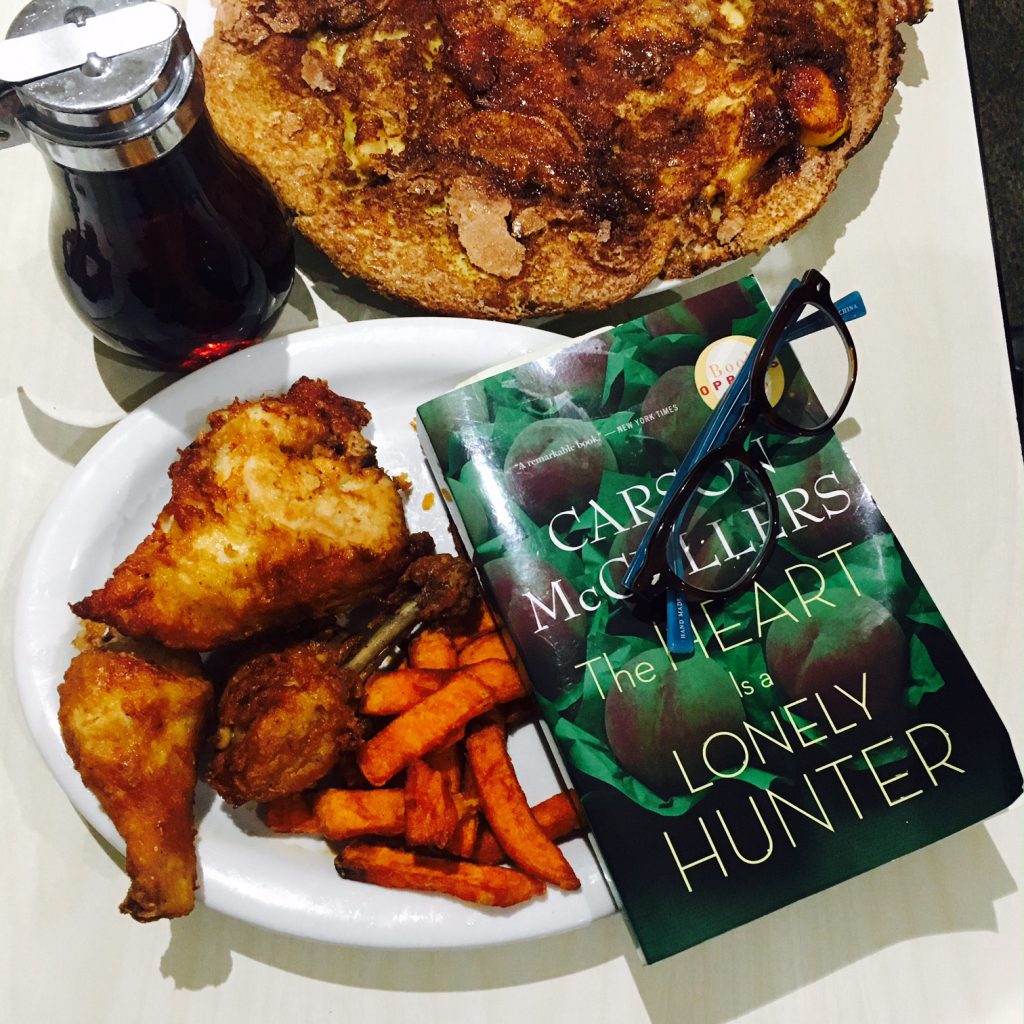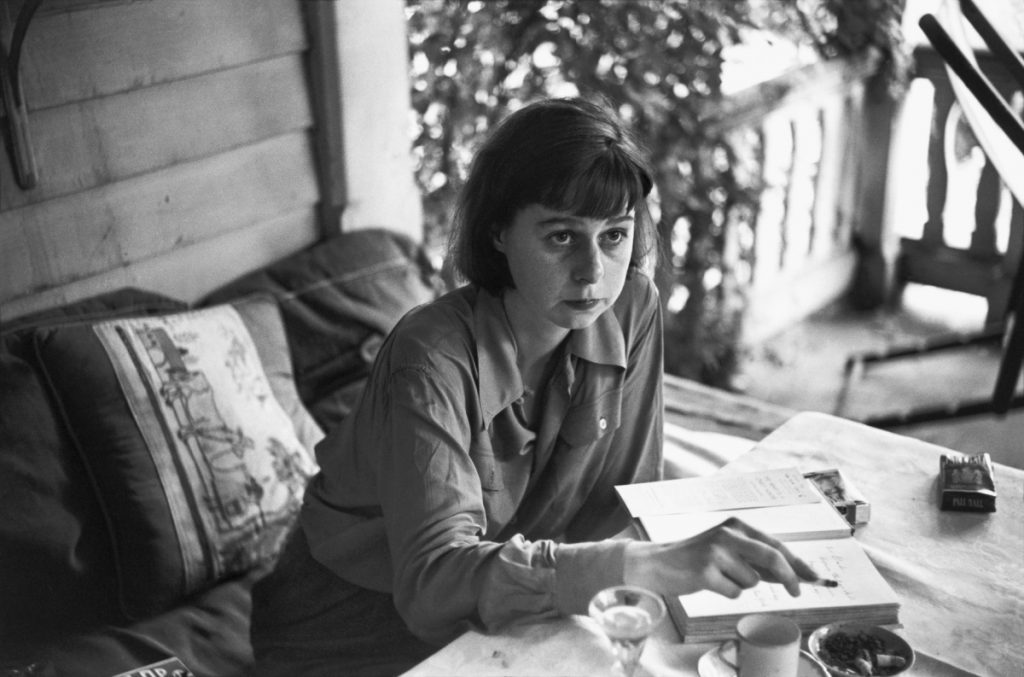To celebrate the centennial of Carson McCullers, the Book Club picked up The Heart is a Lonely Hunter – a masterpiece that many of us read in high school, but one that we all enjoyed revisiting. Most folks know the book’s winning title (it’s a pithy truism) but few recalled the details of the story of five lonely characters in a Southern town. Set in Georgia in the 1930’s, the novel is simple to read, but the characterizations and structure are satisfyingly complex. We decided to meet at Dinah’s for fried chicken and beer for our discussion. If you head to Dinah’s, don’t miss the apple pancake for dessert!
 We loved the story’s ability to get inside the mind of five distinct characters – a gentle deaf mute (a la Lenny from Mice in Men, which was published a few years earlier), a drunken union organizer, a thoughtful cafe owner, a frustrated African-American doctor, and a feisty teenage girl. The mute, John Singer, sits at the center of the tale, listening patiently to the tales that each of the other four characters tell him. The book is structured like a musical fugue, and the overlaying voices of the characters are distinct, each telling a story of their singular, outsider perspectives. None has a happy story, or a happy ending to their story, as dreams are squashed by the realities of financial and social constraints and yet, McCullers leaves us with an optimistic last image.
We loved the story’s ability to get inside the mind of five distinct characters – a gentle deaf mute (a la Lenny from Mice in Men, which was published a few years earlier), a drunken union organizer, a thoughtful cafe owner, a frustrated African-American doctor, and a feisty teenage girl. The mute, John Singer, sits at the center of the tale, listening patiently to the tales that each of the other four characters tell him. The book is structured like a musical fugue, and the overlaying voices of the characters are distinct, each telling a story of their singular, outsider perspectives. None has a happy story, or a happy ending to their story, as dreams are squashed by the realities of financial and social constraints and yet, McCullers leaves us with an optimistic last image.
Here is an excerpt from Hilton Als’ worthy New Yorker essay on McCullers’ collected works.
Only after Singer dies does it occur to the others that they had never asked him anything about himself. None of them knew where he’d lived before. None of them knew that he had loved someone once—an “obese and dreamy” Greek named Spiros Antonapoulos, who had been committed to an insane asylum. Talking does not make a difference, McCullers seems to say in this book. We are all in our own cells, writing messages to the world which that world cannot read.
Worth discussing: In today’s world, where we are obsessively connected and spend too much time viewing what others are posting online, it can still feel that we are all in our own cells. What does it mean to truly connect, to move away from loneliness and find what we are looking for? Is it harder today than it was when the story is set, in the 1930’s?
The stylistic norms of Southern Gothic are what stay with the reader – a striking sense of time and place, the blending of familiar and unfamiliar, and gloomy financial fatalism that afflicts these particular souls. McCullers excels at empathizing with each of her subjects; much has been said of her sensitivity to the African-American character, in particular.

Carson McCullers by Henri Cartier- Breton
We were fascinated by Carson herself, who was 23 when this book was published. She enjoyed early and immediate success, published several masterpieces and led a colorful literary life in the 40s and 50s, but had a troubled love life and died alone at the age of 50.
Carson was a music prodigy as a child, like her main character Mick, but cast aside notes for letters and fled to NY where she landed a publishing deal for The Heart is a Lonely Hunter. McCullers soon led the life she’d dreamed of when she was growing up in the South, living amongst the artists and musicians of her era (W.H. Auden, Leonard Bernstein). Click over to Oprah.com here for an excellent description of the many artists that McCullers knew over the years, expanding to Truman Capote, John Huston, and Isak Dineson.
Other notable works are A Member of the Wedding (a 1946 book adapted to successful 1951 play) and a novella called Ballad of the Sad Cafe (1951).
Other reading:
NEA Big Read features this book, with an excellent half hour podcast that features actors and authors who knew McCullers, including Gore Vidal and Alan Arkin (who played John Singer in the film adaptation). Highly recommended!
As mentioned, Hilton Als’ New Yorker piece, Unhappy Endings, covers the span of her career.

